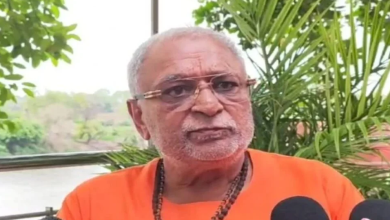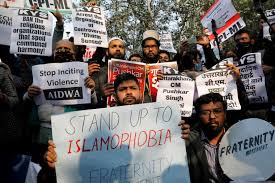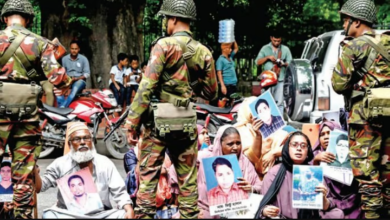Noted US journalist questions whether Modis India is still a democracy
 New York: After “blurring” the lines between Hinduism and the state, Prime Minister Narendra Modi is now on track to become the first Indian prime minister since Pandit Jawaharlal Nehru to win three consecutive terms, Bob Drogin, a prominent American journalist, wrote in The Los Angeles Times.
New York: After “blurring” the lines between Hinduism and the state, Prime Minister Narendra Modi is now on track to become the first Indian prime minister since Pandit Jawaharlal Nehru to win three consecutive terms, Bob Drogin, a prominent American journalist, wrote in The Los Angeles Times.
“When Indian Prime Minister Narendra Modi led the consecration of a vast new Hindu temple atop the ruins of a demolished Muslim mosque in the town of Ayodhya in northern India last week, it showed how far he will go to secure his reelection this year,” said Drogin, who was LA Times correspondent in New Delhi in the 90s. In his opinion piece, Drogin said that he witnessed the destruction of the mosque in Ayodhya and was “clubbed” by police as they dispersed foreign journalists covering the event.
The article said: “Not that stoking religious strife is a new tactic for the 73-year-old Modi. He rode to power, and clings to it now, on the back of militant Hindu nationalism and the menace of anti-Muslim violence. In 2005, Modi, then the top official in the Indian state of Gujarat, became the first and only person ever barred from entering the United States under a little-known immigration law that makes foreign officials ineligible for visas if they are responsible for particularly severe violations of religious freedom. “U.S. officials had determined that Modi stood by during Hindu riots that killed more than 1,000 Muslims in Gujarat state in 2002. The visa ban was lifted only when he became prime minister in 2014. Today Modi’s brand of militant Hindu supremacy has replaced political pluralism as India’s dominant ideology, threatening the nation’s status as a secular republic. As a foreign correspondent for the Los Angeles Times, I saw the beginnings of India’s anti-democratic slide on a sunny day in December 1992, on the contested ground in Ayodhya.
“Thousands of Hindu pilgrims, white-bearded priests, dhoti-clad holy men and other devotees who had gathered for a political rally suddenly stormed the historic Babri mosque, built in the 16th century by Babur, the first Mughal emperor, on the site of the supposed birthplace of the Hindu deity Ram. The Hindu mob tore the mosque apart, brick by brick, with pikes, pickaxes and their bare hands. They pulled down guard towers with grappling hooks and climbed barefoot over barbed wire barricades. Foreign journalists were chased and clubbed. I was whacked with bamboo and hit with a brick. “The destruction of the mosque set off some of its worst religious pogroms in India since independence in 1947. Entire Muslim neighborhoods were torched and families slaughtered. A Newsweek cover famously warned of Holy War on the subcontinent; its rival Time deemed the communal violence an Unholy War.
Three-plus decades later, much of India came to a standstill on January 22 to watch as Modi consecrated Ram Mandir, a richly decorated $220-million temple built over the destroyed Babri mosque. In many Indian states, it was a public holiday. Stock markets and most schools and offices were closed. Government offices shut for half a day. Nonstop TV coverage showed the prime minister placing a lotus flower by the jet-black Ram idol in the temple’s inner sanctum, prostrating himself before it and all but declaring Hinduism a state religion. An Indian Air Force helicopter dropped flower petals outside, priests blew conches and chanted, but Modi was the star.
Modi’s government has adopted laws and policies that discriminate against religious minorities, especially Muslims, Human Rights Watch warns on its website.








